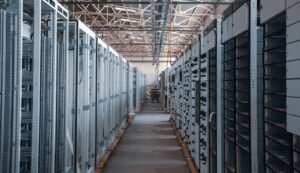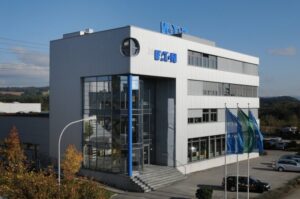Advanced thermal management with GemaTEG
People are making increasingly large demands of “The Cloud”, from ever larger data backups to multiplying numbers of virtual machines. […]
EPFL Swiss Federal Offices Day 2024
On 7 October 2024, this one-day conference will offer a unique opportunity to explore Federal funding programmes and meet their […]
Eaton are recruiting a Data Center Key Account Manager
Eaton Industries Manufacturing GmbH are recruiting EMEA headquarters in Morges, as well as our teams in Effretikon, Le Lieu, Le […]


